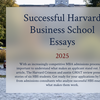Under the new House Dean system all Gov. majors will have tutorial. The department hopes that Sophomores and non-honors juniors will have tutors in their own houses, with honors '54 men branching off into special topics.
Although the department is loaded with men famous in their fields, picking good courses is still a hard problem. The old axiom that a brilliant scholar is not necessary a good lecturer is only too true here.
Only additional course this year will be "Government and Defense", taught by Samuel P. Huntington.
Most popular section is American Government. Since one part of the divisional exam deals exclusively with Constitutional Law, usually everyone in the American field memorizes their way through an excellent term in McCloskey's 124. V. O. Key gives 135, "Party Government in the United States." An expert in his field he is known as a dry lecturer and seldom gives decisive statements. Exam questions are handed out weeks before the exam in Charles R. Cherington's witty, interesting, but light 153 and Arthur N. Holcombe, the grand old man of the department is not considered difficult. Arthur A. Masss' good convervation course has a long research paper, but limited reading assignments.
Very few students take 140, 141, or 142. State and Local Government, if you want that type of administrative material turn to John M. Gaus' courses.
Probably the toughest of the three divisions is Political theory. Nearly every senior takes Carl J. Friedrich's "History of Political Thought"; honors candidates are required to answer one question from this field. Samuel H. Beer is well liked in his basic 112, while Merle Fainsod's quiet eloquence makes Gov. 115 a gem, and a "box office success."
Smallest departmental enrollment is usually in International Law and Relations, where McGeorge Bundy leads the held with 130 and 135. Both are tough, but worth the effort in a field that needs strength badly. Inis L. Claude will take off-changing 170 this fall and Hopper's course are not noted for heavy material.
If he is not scared by William Y. Elliott profound, and at times obscure, harranges in Gov. 1a, a prospective concentrator will find ploddding through a tough Government schedule unusually revardise.
History and Literature
Number of Concentrators: 185.
History and Literature has always been the field. It has fairly stringent admissions requirements (Group IV at least requires regular attendance at tutorial meetings (once every two weeks sophomores and once a week for juniors and seniors.)
Ever since the department was founded by Professor Barrett Wendell at the turn of the century, its prestige has rested mainly on individual tutorial. But starting next year, History and Literature will no longer possess this distinction. For then all the five largest fields will require tutorial for all sophomores, juniors, and honor-bound seniors.
But the prestige of History and Literature will not be diminished, tutors in the field quickly point out. For one thing, it is still a very small field, admitting only 50 from Harvard and 15 from Radcliffe per class.
Within 11 special fields, students can specialize in such subjects as Greek, Roman, German, English, American History and Literature, or study the Middle Ages, the Renaissance and Reformation, and the Modern Period. Eight courses in the department are necessary for honors.
Besides the endless series of tutorial inations in the sophomore year with oral sessions, there are special tutorial exam-tests in the Bible and Shakespeare. Early in the fall of the junior year comes another oral exam on one ancient historian, such as Herodotus or Thucydides, and an Ancient author such as Sophocles. Besides this a tutorial conference is held in the junior's spring term on some modern author. Shortly after, juniors must undergo a qualifying examination for honors. Failure means a lost opportunity for a cum of any thing higher.
Read more in News
Dunces Elect












